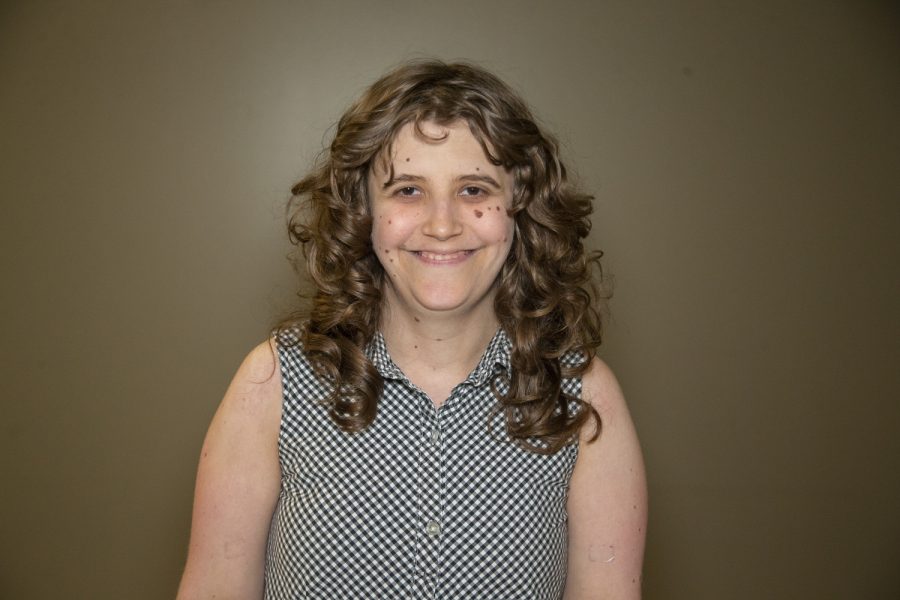Opinion | Disabilities do not prevent successful and normal college experiences
The opportunities I’ve had at the University of Iowa are because of my genetic disease.
October 6, 2021
I’m your typical college student, except for my genes.
When I was diagnosed with Turner syndrome, nobody told me that my genetic disorder would prevent me from getting into the best writing school in the state. Disabilities can present obstacles, but they do not always prevent a normal and happy college experience.
While Turner syndrome can present learning difficulties, most people with it can attend regular classes and are good at writing, memorization, auditory learning, and language skills. I also got a B in college-level chemistry and calculus, despite the fact people with Turner syndrome typically struggle with math.
Other students with genetic disorders have also found ways to have a successful college experience.
Jennifer Jex, a University of Iowa fifth-year student in the REACH Program studying health and science, was diagnosed with 22q deletion syndrome — a genetic disorder caused by small deletion of chromosome 22. Jex is on the leadership team for UI Dance Marathon and is president of Rays of REACH. She also volunteers at the Children’s Library at the UI Stead Family Children’s Hospital and hosts late night activities for Campus Activities Board (CAB). Jex said she is in traditional Pilates and taking the UI’s Successful Teamwork for the Workplace course.
“My college experience is similar to traditional [students], but different in many ways with being in the REACH Program,” Jex said.
Jex said she focuses on career and household management skills in the REACH program.
“My disability shaped my college experience because I got to meet so many people within the REACH Program,” Jex said.
22q deletion syndrome did not prevent Jex from having these experiences. I had a similar experience with Turner syndrome.
Turner syndrome is what originally made me want to apply to The Daily Iowan’s Diversity, Equity, and Inclusion Committee — something I cannot imagine my college experience without.
Turner syndrome has not prevented me from accomplishing something noteworthy. I work in two research labs for the UI Department of Psychological and Brain Sciences. I am also pursuing honors in the psychology program and working on an independent research project.
I recently got advice from a clinical psychology graduate student about graduate school about coming up with a very specific research question I want to study as a graduate student. Now I know I want to study how mosaic versus classic Turner syndrome affects ADHD symptoms.
People with Turner syndrome have increased levels of ADHD symptoms. I wanted to research whether mosaic versus classic Turner syndrome — having a full or partially missing X chromosome, — impacts this. Turner syndrome has inspired my plans after college and has given me a specific research question to talk about in my personal statement when applying to graduate schools.
Despite infertility and awkward social skills, Turner syndrome does not make me unhappy. I still have a lot going for me, including friends and family who love me unconditionally. Turner syndrome has blessed me with a friend to have Netflix parties in bed with on weekend nights when I’m away from home.
Despite never-ending medication and doctor’s appointments, I feel like a normal college student: I need caffeine and music to function, I have a sleep schedule nobody understands, and I just want to graduate.
Because of Turner syndrome, Iowa City, a city known for its Hawkeye sports, cheers on my narratives about living with a congenital heart defect. My college experience has been successful because of — not despite — Turner syndrome. Having a genetic abnormality does not prevent aspects of a normal life. We can either choose to let the lemons life throws at us go sour or make the lemonade — I prefer to make lemonade.
Columns reflect the opinions of the authors and are not necessarily those of the Editorial Board, The Daily Iowan, or other organizations in which the author may be involved.



